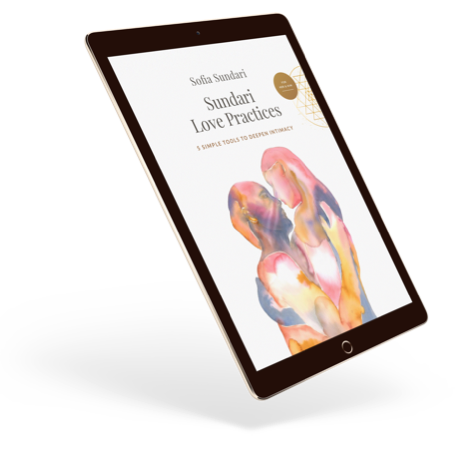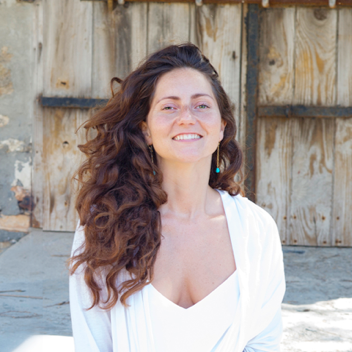
Have you ever wondered how to maintain a healthy relationship for years and years that helps you both grow, and at the same time keep your individuality?
In a relationship we want to fulfill our need for feelings of togetherness, reliability, security and safety, and at the same time our needs for independence, freedom and space. And the balance between the two is crucial for a healthy relationship. If you are too close all the time – you become extensions of each other, or if you are always apart you lack the connection. But if the two people are developing their individuality – they become very curious and interested in the other person, who is an independent being, but at the same time so close.
In long term relationships people tend to think that they know their partner completely, and there is nothing more to discover, which is a big illusion. Such relationships lack freshness and actually slowly die off. In fact, there is always something mysterious and unknown about the other person. We can never feel exactly what the other person is feeling, we can only be very present with them and get a bit of an idea, but it will still be quite far from the original experience. What happens often is that this unknown in the other person makes us feel threatened. And instead of opening to it, and trying to discover this mystery, we close off.
A sence of openness is founded on trust, connection, closeness. From this place you allow the other one to develop. Allowing differences, separateness in the relationship. It might be threatening for partners to allow this space, but what does it tell us? Perhaps there is a lack of trust. Then it is good to take steps towards it, it doesn’t have to be huge: even a walk in the park by yourself could be a good start – such small things can bring a shift in the relationship. Partners start to trust each other more, because they know that “when you leave you come back, when I leave I come back”. All this will help bring more fluidity into the relationship. The important thing is to take action. The passivity is what makes a relationship die off.
Psychologist Esther Perel conducted a very interesting research project asking people when they felt most drawn to their partner, and often the answer was – when they looked at their partner from a comfortable distance: not too close when they blended together, and not too far apart, when they could no longer see them. Some of the answers: “when I see him in the studio, when I see her doing something she is passionate about, when I see him at a party and people are drawn to him, when she is on stage…” that is when I observe my partner as radiant and confident. And then suddenly the person who is so close and so familiar becomes somewhat mysterious, unknown.
Proust says: “mystery is not about traveling to new places but about looking with new eyes”. An interesting fact about it is that there is no neediness in this desire. Neediness and care taking is something associated with the parent – child relationship and it is something that decreases the erotic charge big time. There is a big difference between wanting and needing. Desire needs space.
In the ancient philosophy of Tantra it is recommended for couples to sleep and even live separately. There are a few reasons for this: first of all it has to do with the unconscious mixing of astral bodies of partners, which is not healthy for polarity (one of the key elements in Tantra) and therefore attraction of the people to each other; and it helps to maintain our own space, our own identity. With my ex-husband we chose to live together but we slept separately, and we both found it great. From time to time we did sleep together and it felt really special and refreshing, since wasn’t not a mundane thing.
Another frequent answer to the question when do you feel most drawn to your partner was: “when I am surprised, when we laugh together”. Basically, it’s about novelty in the relationship. And it is not about new positions, but more about what parts of yourself you reveal. Emerging slightly from the predictability of the role, being slightly unsettled – space between anxiety and fascination – that’s where mystery arises.
So often people after many years together still love each other, but do not have sexual desire for each other. People create overfamiliarity with the other person, as if they were living with a brother or sister – that’s what kills the desire. The relationship becomes de-eroticised and people get stuck in certain roles. And this is a true path to a break up.
A crisis of desire is often a crisis of imagination. When there is a distance – that’s when imagination can take place, and it is rooted in longing. We are the only beings that have erotic intelligence, and this is because of the ability to imagine. Anticipation plays a huge role.
Also, if the relationship is not connected, caring, vibrant and exciting then there is no space for desire. Sex is the projector on which you can see all that is working or not in the relationship.
Partners tend to blame each other: “you don’t make me feel sexy, desirable etc..” But it is important to take responsibility for it. Blaming someone else for the way we feel is such a huge self-protection mechanism that many people have. But what’s beneath it?
You don’t feel sexy and attractive when you don’t like yourself, when you don’t have time for yourself. See for yourself what will make you feel attractive. And it is all about being interested in life, doing what you love, cultivating individuality and therefore self-esteem and confidence. The ability to be connected to oneself in the presence of the other.
If we want a real connected relationship, a relationship that lasts and that makes us grow – we cannot fall asleep, we cannot be passive, it does require a lot of work, and first of all – work on oneself and commitment to grow together.
Lets get connected. Join the tribe of 100k+ like-hearted souls and follow me on

Get your free ebook
Sundari Love Practices
5 Simple Tools To Deepen Intimacy
